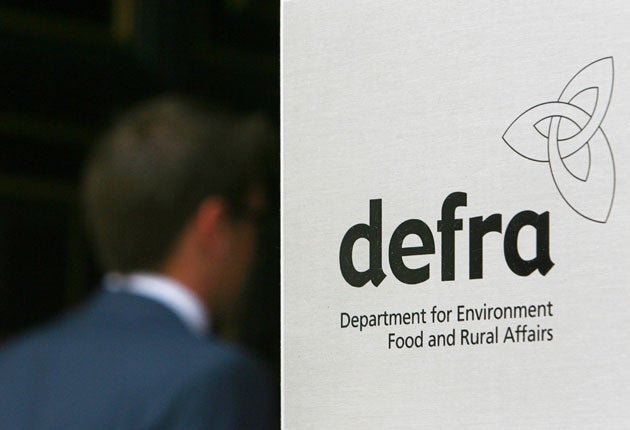Few companies meet carbon reporting norms

Your support helps us to tell the story
From reproductive rights to climate change to Big Tech, The Independent is on the ground when the story is developing. Whether it's investigating the financials of Elon Musk's pro-Trump PAC or producing our latest documentary, 'The A Word', which shines a light on the American women fighting for reproductive rights, we know how important it is to parse out the facts from the messaging.
At such a critical moment in US history, we need reporters on the ground. Your donation allows us to keep sending journalists to speak to both sides of the story.
The Independent is trusted by Americans across the entire political spectrum. And unlike many other quality news outlets, we choose not to lock Americans out of our reporting and analysis with paywalls. We believe quality journalism should be available to everyone, paid for by those who can afford it.
Your support makes all the difference.Most British businesses fail to comply with government guidance on reporting their carbon footprints, a Deloitte survey of 100 listed firms reveals.
Of the companies polled, only a handful came "within striking distance" of complying with the guidance, suggesting that reporting practices would need to undergo a significant overhaul if the rules become mandatory. "Many companies, particularly those outside the top tier of FTSE companies, could do better," said Jenny Harrison, a director of Deloitte's energy practice and carbon reporting and assurance team.
Last year, the Department for the Environment, Food and Rural Affairs (Defra) published guidance on how to measure and report carbon emissions. Though currently voluntary, the Defra guidance could be rendered mandatory from 2012.
Against this backdrop, Deloitte said 57 per cent of companies in the survey reported carbon information to some degree, with all but one of the top 350 listed firms failing to do so, while 37 per cent made formal disclosures in their annual, corporate responsibility or equivalent reports.
Only 9 per cent said their disclosures on carbon had been reported in line with Defra guidance, however, and only 8 per cent said their data had been assured by a third party.
"Many companies failed to make basic disclosures around the reporting methodology used, or accounting principles applied, highlighting a lack of transparency around measurement principles and reporting of carbon footprints," Ms Harrison added. "Carbon reporting is in its infancy relative to the financial reporting frameworks in existence, and there are additional complexities around measurement of carbon data. This heightens the risk of errors in published information."
Of the companies polled, all professional services firms reported carbon data, as did the vast majority – more than 86 per cent – of companies polled in the energy, infrastructure and utilities sectors, and the tourism, hospitality and leisure industries.
Some 58 per cent of technology, media and telecoms businesses surveyed and 55 per cent of manufacturing companies did not report any such data, however. That said, it is hard to draw industry-specific conclusions, because the sample sizes for some groups were relatively small.
Join our commenting forum
Join thought-provoking conversations, follow other Independent readers and see their replies
Comments